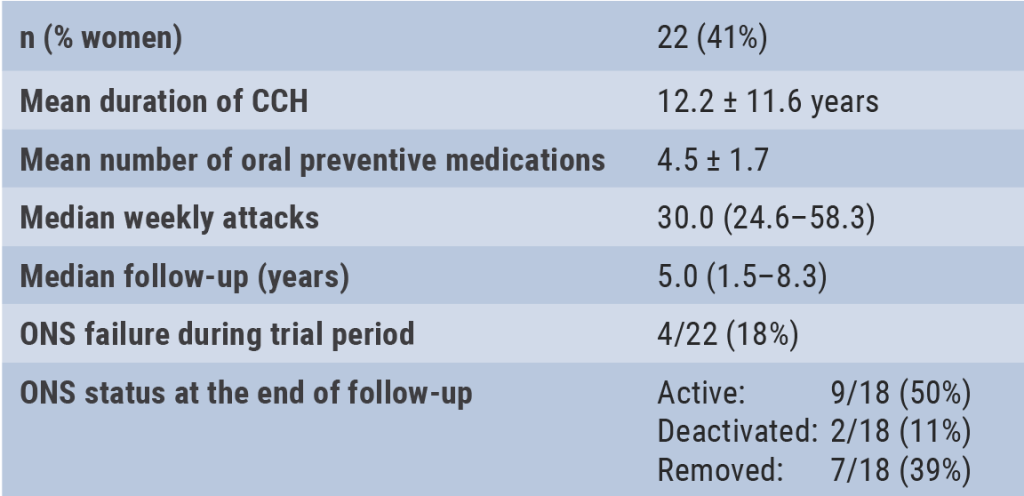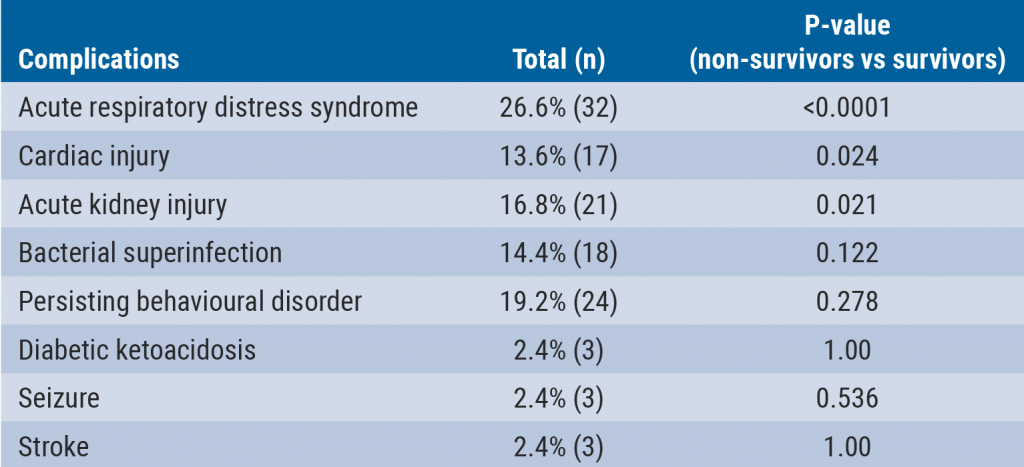Risdiplam is approved for the treatment of patients with SMA aged ≥2 months. FIREFISH (NCT02913482) is an ongoing, multicentre, open-label study of risdiplam in infants with Type 1 SMA. Patients were aged 1–7 months at enrolment and had 2 SMN2 gene copies. Part 1 of the trial (n=21) assesses safety, tolerability, and pharmacokinetics/pharmacodynamics (PK/PD) of different risdiplam doses; part 2 of the trial (n=41) assesses efficacy and safety of risdiplam at the dose selected in part 1. Presented were the pooled safety and efficacy data of 58 participants in FIREFISH part 1 (high-dose cohort, n=17) and part 2 (n=41), who have been treated over 24 months [1].
Treatment over 24 months led to further improvement in the ability to sit without support. After 12 months of treatment, 19 of 58 infants (33%) could sit without support for ≥5 seconds; 11 of 58 (19%) could sit without support for ≥30 seconds. After 24 months of treatment, 35 of 58 (60%) could sit without support for ≥5 seconds; 23 of 58 (60%) for ≥30 seconds. Treatment also resulted in continued gains in motor milestones (HINE-2) after 24 months: 48 of 58 infants (83%) had treatment response using the HINE-2 scale and prespecified response criteria. Swallowing and feeding ability was maintained by the majority of infants alive at month 24. Event-free survival time was greatly improved in infants treated with risdiplam compared with historical data: 91% were alive after 24 months and 83% were event-free. The rate of hospitalisations and of serious adverse events both almost halved during the second 12-month period compared with the first 12 months.
- Masson R, et al. FIREFISH Parts 1 and 2: 24-Month Safety and Efficacy of Risdiplam in Type 1 SMA. EPR-281, EAN 2021 Virtual Congress, 19–22 June.
Copyright ©2021 Medicom Medical Publishers
Posted on
Previous Article
« Inability to recognise disgust as first cognitive symptom of ALS Next Article
Promising diagnostic accuracy of plasma GFAP »
« Inability to recognise disgust as first cognitive symptom of ALS Next Article
Promising diagnostic accuracy of plasma GFAP »
Table of Contents: EAN 2021
Featured articles
Letter from the Editor
COVID-19
First evidence of brainstem involvement in COVID-19
Cognitive/behavioural alterations persistent after COVID-19
Neural base of persistent hyposmia after COVID-19
Neurological symptoms and complications of COVID-19 affect outcomes
Cerebrovascular Disease
Intracerebral haemorrhage only slightly increases mortality in COVID-19 patients
Stroke with covert brain infarction indicates high vascular risk
Expanding precision medicine to stroke care
Dexamethasone not indicated for chronic subdural haematoma
Cognitive Impairment and Dementia
Severe outcomes of COVID-19 in patients with dementia
Promising diagnostic accuracy of plasma GFAP
Sex modulates effect of cognitive reserve on subjective cognitive decline
Hypersensitivity to uncertainty in subjective cognitive decline
Epilepsy
Minimally invasive device to detect focal seizure activity
‘Mozart effect’ in epilepsy: why Mozart tops Haydn
Migraine and Headache
Factors associated with decreased migraine attack risk
Pregnant migraine patients at higher risk of complications
Occipital nerve stimulation in drug-resistant cluster headache
Rhythmicity in primary headache disorders
Multiple Sclerosis and NMOSD
Typing behaviour to remotely monitor clinical MS status
Alemtuzumab in treatment-naïve patients with aggressive MS
No higher early MS relapse frequency after stopping ponesimod
Good long-term safety and efficacy of inebilizumab in NMOSD
Neuromuscular Disorders
Inability to recognise disgust as first cognitive symptom of ALS
Pathogenic T-cell signature identified in myasthenia gravis
Parkinson’s Disease
Levodopa-carbidopa intestinal gel in patients with advanced PD
New Frontier – Navigated Transcranial Ultrasound
Exploring the possibilities
Related Articles

August 18, 2021
Occipital nerve stimulation in drug-resistant cluster headache
August 18, 2021
Machine-learning method accurately classifies patients with MS

August 18, 2021
Severe outcomes of COVID-19 in patients with dementia
© 2024 Medicom Medical Publishers. All rights reserved. Terms and Conditions | Privacy Policy
HEAD OFFICE
Laarderhoogtweg 25
1101 EB Amsterdam
The Netherlands
T: +31 85 4012 560
E: publishers@medicom-publishers.com

